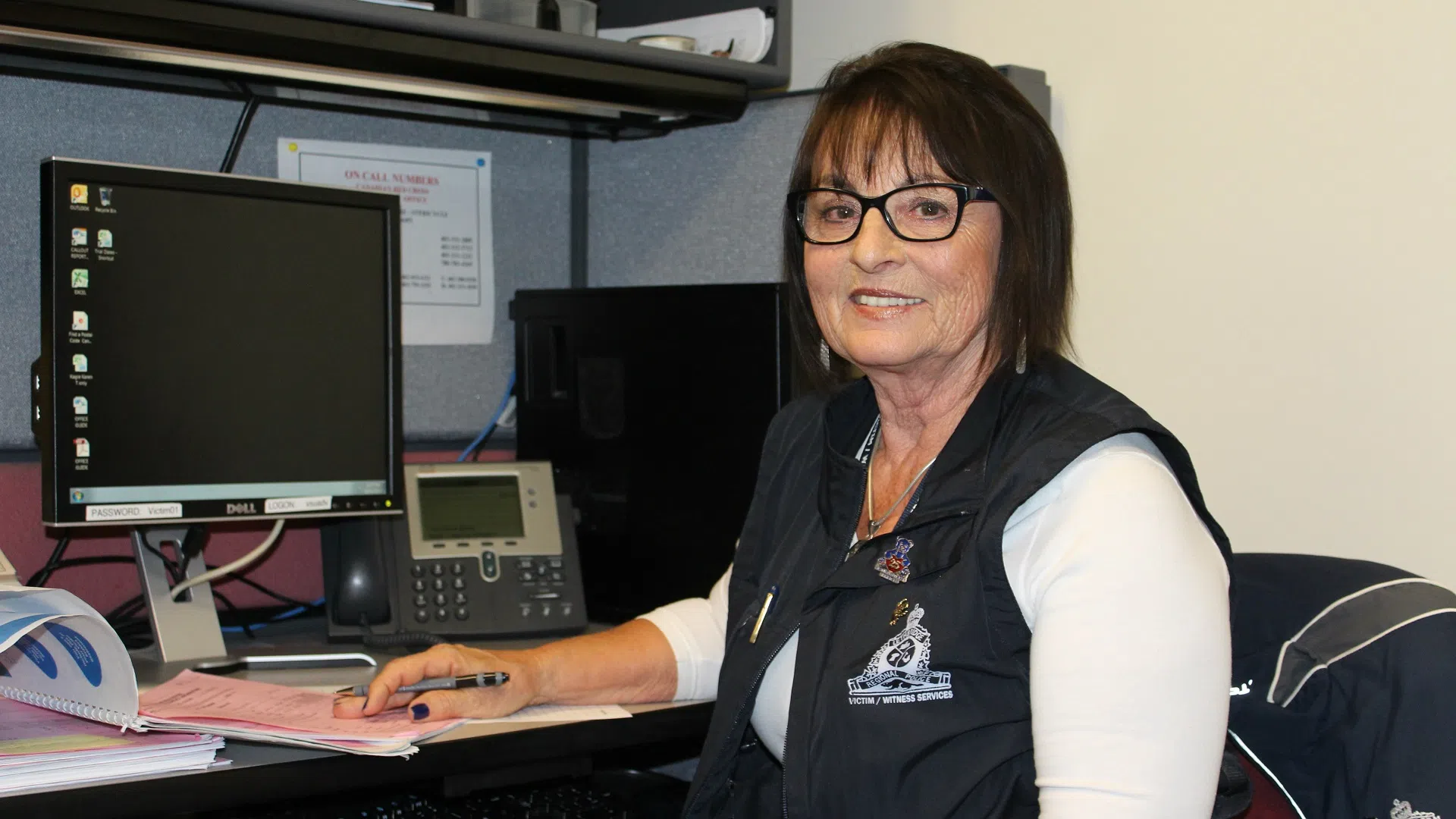
Picking up the pieces: the work of a Victim/Witness Services volunteer
LETHBRIDGE – Job description: Be prepared to answer the phone at 3 a.m., then rush to a crime scene to help comfort someone – most likely a complete stranger – who may be in the middle of the worst experience of their life. Oh, and you don’t get paid for it.
I ask Wilma Neufeld why she does it. Why does she volunteer with the Victim/Witness Services program with the Lethbridge Police Service?
She smiles.
“My background is nursing, I was a nurse for over 30-years,” she says, explaining what drew her to the program in the first place. “When I retired, I decided I wanted to do something for the community and give back, and just keep in touch with people.


